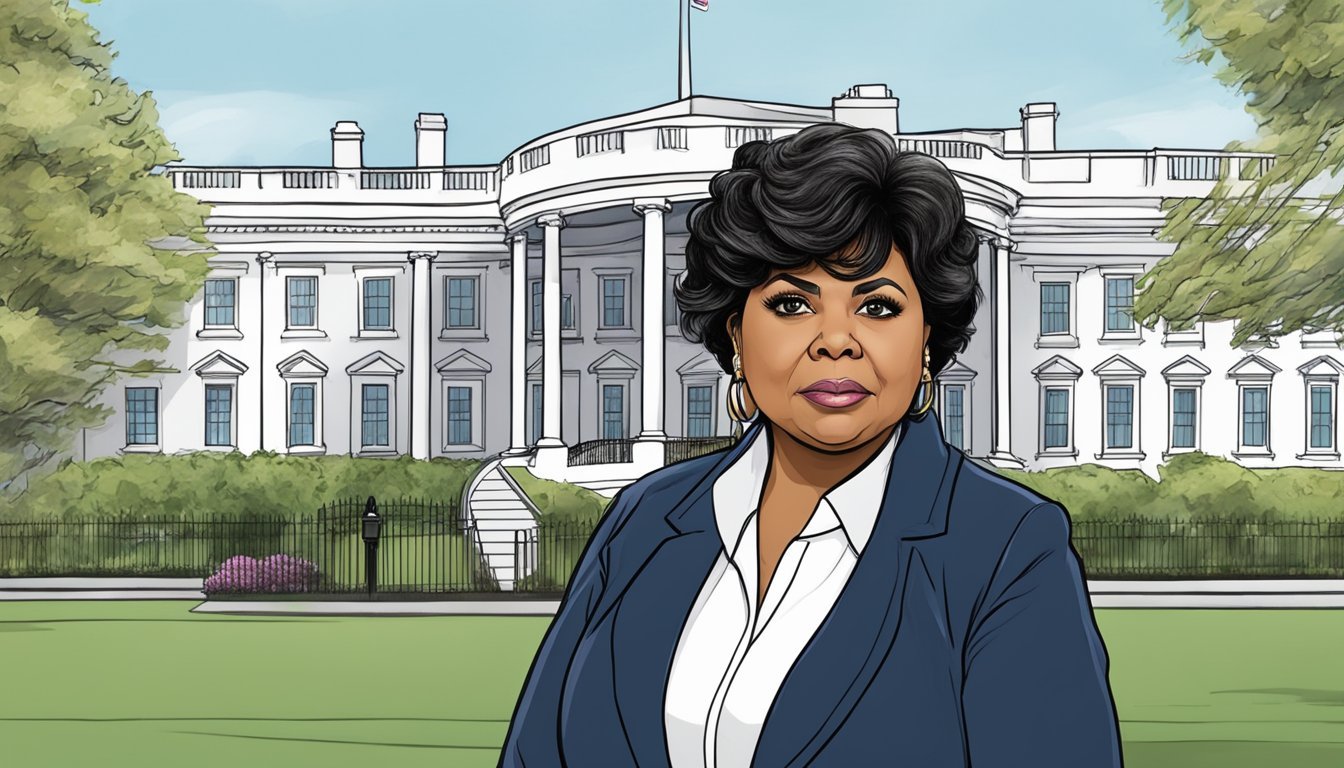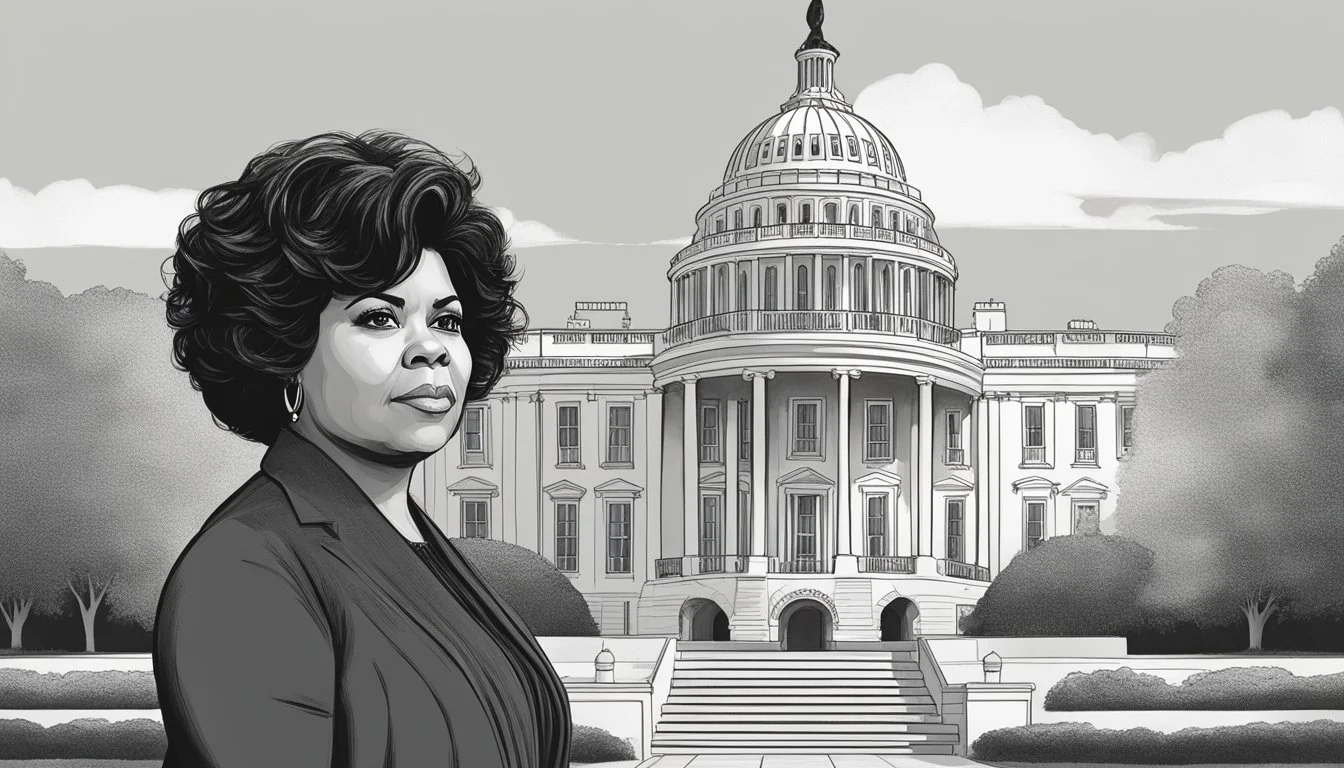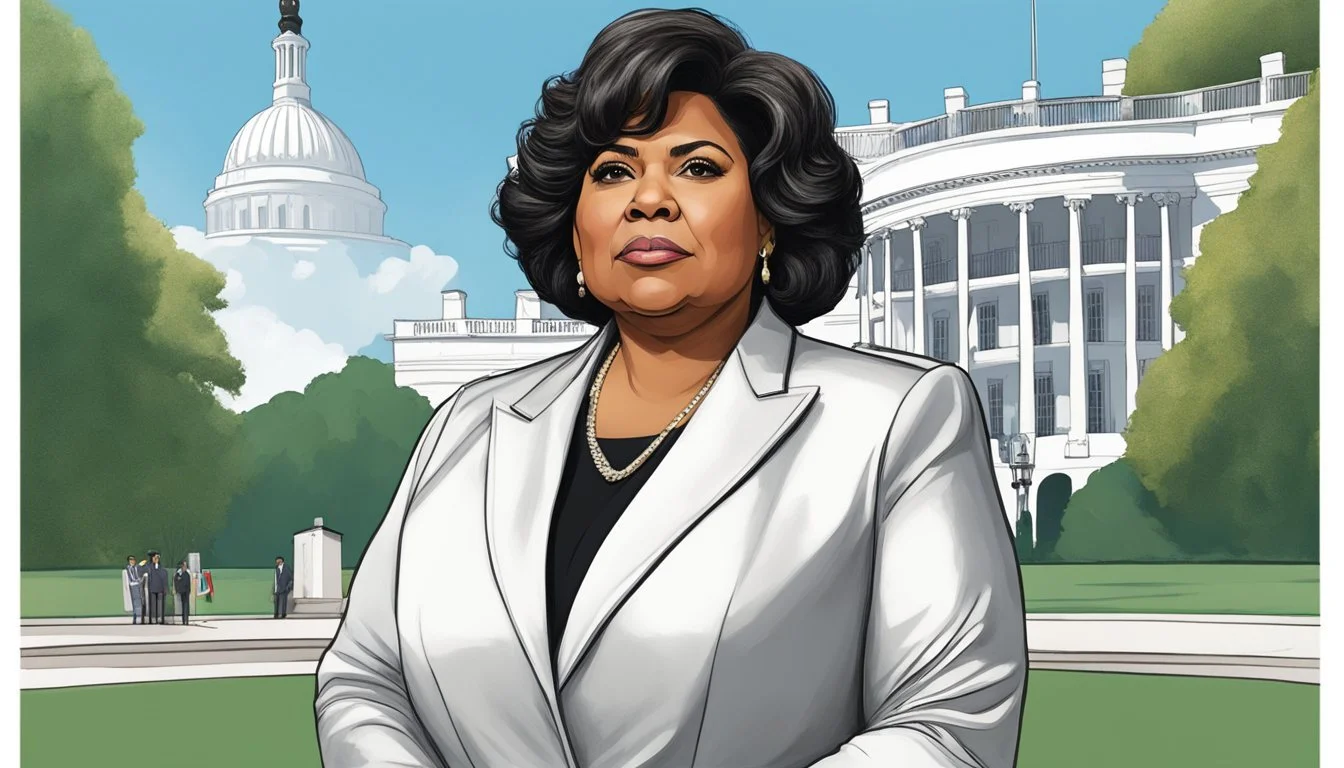April Ryan: White House Correspondent or Trump Antagonist?
A Look at Her Controversial Tenure
April Ryan has been a prominent figure in the White House press corps for over two decades. As a correspondent for The Grio and a political contributor for MSNBC, she has become known for her tough questioning and occasional clashes with former President Donald Trump. Ryan's role as a journalist has sparked debate about the line between objective reporting and adversarial interactions with political figures.
Ryan's tenure as a White House correspondent has spanned multiple administrations, but her encounters with Trump garnered significant attention. She faced criticism from Trump supporters who viewed her as antagonistic, while others praised her for holding the president accountable. Ryan's experiences highlight the challenges faced by journalists, particularly women of color, in navigating the complex dynamics of White House reporting.
Throughout her career, Ryan has received recognition for her work, including being named Journalist of the Year by the National Association of Black Journalists. Her longevity in the White House press corps and her willingness to ask difficult questions have solidified her position as a respected voice in political journalism.
April Ryan's Career Overview
April Ryan has established herself as a prominent figure in American journalism, known for her work as a White House correspondent and author. Her career spans decades and includes significant milestones in political reporting.
Early Life and Education
April Danielle Ryan was born on September 5, 1967, in Baltimore, Maryland. She developed an interest in journalism from a young age. Ryan pursued her passion by attending Morgan State University, a historically black institution in Baltimore.
At Morgan State, she honed her skills in communication and media studies. The university provided a foundation for her future career in journalism. Ryan graduated with a degree that prepared her for the challenging world of political reporting.
Rise to National Prominence
Ryan's career took off when she joined American Urban Radio Networks in 1997. She quickly became the network's White House correspondent, a position she held for over two decades.
Her tenacious questioning style and dedication to her craft earned her respect in the press corps. Ryan covered four presidential administrations, from Clinton to Trump. Her visibility increased during the Trump administration due to several high-profile exchanges with the president and his press secretaries.
In 2017, Ryan expanded her reach by becoming a political analyst for CNN. This role allowed her to share her insights with a broader audience.
Major Works and Publications
Ryan has authored several books that offer unique perspectives on American politics and race relations. Her first book, "The Presidency in Black and White," was published in 2015. It provided an insider's view of race relations in the White House across multiple administrations.
In 2018, she released "Under Fire: Reporting from the Front Lines of the Trump White House." This book detailed her experiences covering the Trump administration. Ryan also wrote "At Mama's Knee: Mothers and Race in Black and White," exploring the role of mothers in shaping racial understanding.
These publications have solidified Ryan's position as both a journalist and a cultural commentator. Her works offer valuable insights into the intersection of race, politics, and media in America.
Role as a White House Correspondent
April Ryan has served as a White House correspondent for over 25 years, covering five presidential administrations. Her tenure has been marked by significant interviews, hard-hitting questions, and a commitment to representing minority voices in the press corps.
The Press Corps Evolution
Ryan joined the White House press corps in 1997, becoming one of the few black female correspondents at the time. She witnessed firsthand the changing dynamics of the briefing room as digital media gained prominence.
Ryan's presence helped diversify the press corps, bringing attention to issues affecting minority communities. Her persistence in asking tough questions, even when faced with pushback, set a standard for future journalists.
Key Presidential Administrations
Ryan covered the administrations of Bill Clinton, George W. Bush, Barack Obama, Donald Trump, and Joe Biden. Each presidency presented unique challenges and opportunities for her reporting.
During the Bush years, Ryan gained respect for her balanced coverage and ability to secure exclusive interviews. The Obama era saw her rise to prominence as a trusted voice on issues of race and politics.
The Trump administration proved particularly contentious, with Ryan often clashing with officials over access and transparency. These encounters further cemented her reputation as a fearless journalist.
Significant Interviews and News Stories
Ryan's career highlights include exclusive interviews with multiple presidents and key administration figures. Her questioning often led to newsworthy moments and policy revelations.
She broke important stories on topics ranging from foreign policy to domestic issues. Ryan's coverage of the White House response to Hurricane Katrina and the Obama administration's efforts on healthcare reform garnered widespread attention.
As a political analyst for CNN, Ryan provided valuable insights into the inner workings of the White House. Her books, including "The Presidency in Black and White," offered readers a behind-the-scenes look at her experiences.
Advocacy and Impact on Media
April Ryan's career as a White House correspondent has been marked by her advocacy for underrepresented voices and her confrontations with the Trump administration. Her work has garnered recognition and sparked discussions about the role of journalists in holding power accountable.
Championing Black Issues and Perspectives
April Ryan has consistently used her platform to highlight issues affecting the Black community. She frequently asks questions about racial disparities, civil rights, and social justice during White House press briefings. Ryan's approach ensures that concerns often overlooked by mainstream media receive attention at the highest levels of government.
Her advocacy extends beyond the press room. Ryan actively participates in organizations like the National Association of Black Journalists, promoting diversity in newsrooms. She is also a member of Delta Sigma Theta, a historically Black sorority known for its commitment to public service.
Encounters with the Trump Administration
Ryan's interactions with the Trump administration were often tense and widely publicized. She faced criticism from President Trump and his staff for her direct questioning style. In one notable incident, Trump told Ryan to "sit down" during a press conference, sparking debates about respect for the press.
These confrontations raised concerns about freedom of the press and the treatment of journalists, particularly those from minority backgrounds. Ryan's experiences highlighted the challenges faced by reporters in an increasingly hostile political environment.
Awards and Recognitions
Ryan's work has earned her numerous accolades within the journalism community. She was named Journalist of the Year by the National Association of Black Journalists, recognizing her contributions to the field and her advocacy for diverse voices in media.
The NAACP honored Ryan with an Image Award, acknowledging her impact on public discourse and representation. These recognitions underscore Ryan's influence as both a journalist and an advocate for marginalized communities.
Ryan's career exemplifies the evolving role of White House correspondents in the modern media landscape. Her work continues to shape discussions about race, politics, and press freedom in America.
Controversies and Challenges
April Ryan's tenure as a White House correspondent has been marked by notable conflicts and obstacles. Her interactions with administration officials and the broader political climate have shaped her experiences in significant ways.
Tension with Presidential Press Secretaries
Ryan's exchanges with White House press secretaries, particularly Sean Spicer, often became contentious. Spicer frequently clashed with Ryan during briefings, at times accusing her of pushing an agenda. Their tense relationship culminated in several heated exchanges that made headlines.
Ryan's persistent questioning on sensitive topics led to accusations of bias from some administration officials. However, she maintained that her role was to seek truth and hold power accountable.
The friction extended beyond Spicer, with subsequent press secretaries also engaging in verbal sparring matches with Ryan during briefings. These incidents highlighted the increasingly adversarial relationship between the Trump administration and certain members of the press corps.
Handling of Death Threats and Security
Ryan's critical coverage of the Trump administration led to a disturbing escalation in personal threats. She reported receiving death threats, which necessitated hiring private security for protection.
The threats against Ryan underscored the dangers faced by journalists in an increasingly polarized political environment. Her experiences shed light on the personal toll of covering contentious political stories.
Despite the intimidation, Ryan continued her work, emphasizing the importance of a free press in democracy. Her resilience in the face of threats became a talking point about journalist safety and press freedom.
The Role of Media in Democracy
Ryan's confrontations with the White House raised broader questions about the media's function in a democratic society. Her tough questions and refusal to back down exemplified the press's watchdog role.
Critics accused Ryan of grandstanding or pushing a partisan agenda. Supporters praised her for asking challenging questions and holding officials accountable.
The debates surrounding Ryan's approach reflected larger discussions about objectivity in journalism and the balance between respectful discourse and rigorous questioning. Her experiences became a focal point in conversations about "fake news" allegations and attacks on media credibility.
Ryan's story highlighted the complexities of modern political reporting and the challenges journalists face in maintaining their integrity while navigating an increasingly hostile environment.
Influence and Legacy
April Ryan's career as a White House correspondent has left an indelible mark on journalism and representation in media. Her tenacity and dedication have shaped political reporting and inspired a new generation of journalists.
Inspirations for Aspiring Journalists
Ryan's groundbreaking work serves as a beacon for young journalists, especially women of color. Her resilience in the face of adversity demonstrates the importance of perseverance in the field. Ryan's ability to ask tough questions and hold power accountable provides a masterclass in political reporting.
Her book "Black Women Will Save the World" offers insights into her experiences and challenges. This work not only chronicles her journey but also provides valuable lessons for those entering the profession. Ryan's success story encourages aspiring reporters to pursue their dreams despite obstacles.
Representation of Black Women in Media
As the longest-serving Black female White House correspondent, Ryan has significantly improved representation in the press corps. Her presence in the briefing room challenges stereotypes and opens doors for other Black women in media.
Ryan's visibility in high-profile political coverage normalizes diversity in journalism. Her work highlights the importance of diverse perspectives in news reporting. By sharing her unique viewpoint, she enriches public discourse on national issues.
Future of Political Reporting
Ryan's impact extends beyond her personal achievements to shape the future of political journalism. Her approach to questioning officials and uncovering stories sets a standard for thorough reporting. Ryan's focus on accountability and transparency influences how future generations of journalists approach their craft.
Her use of social media and digital platforms demonstrates the evolving nature of news dissemination. Ryan's adaptability to changing media landscapes provides a model for journalists navigating the digital age. Her work emphasizes the continued relevance of fact-based reporting in an era of rapid information flow.
Concluding Remarks
April Ryan's tenure as a White House correspondent spans multiple administrations, cementing her place in journalism history. Her role extends beyond reporting, as she has become a political analyst and author.
Ryan's experiences, particularly during the Trump era, highlight the challenges faced by journalists in a polarized political climate. Her confrontations with the administration drew both praise and criticism, sparking debates about press freedom and accountability.
As an African American woman in the White House press corps, Ryan broke barriers and paved the way for greater diversity in political journalism. Her persistence in asking tough questions, regardless of potential backlash, exemplifies her commitment to her profession.
Ryan's legacy is multifaceted. She has authored books detailing her experiences and insights into the political landscape. Her work continues to inform and influence public discourse on national affairs.
The impact of Ryan's career extends beyond her individual achievements. She represents a shift in the dynamics of political reporting, demonstrating the importance of diverse voices in holding power to account.
Ryan's journey serves as a case study in the evolving relationship between the press and the presidency. Her experiences offer valuable lessons for aspiring journalists navigating the complex world of political reporting.





